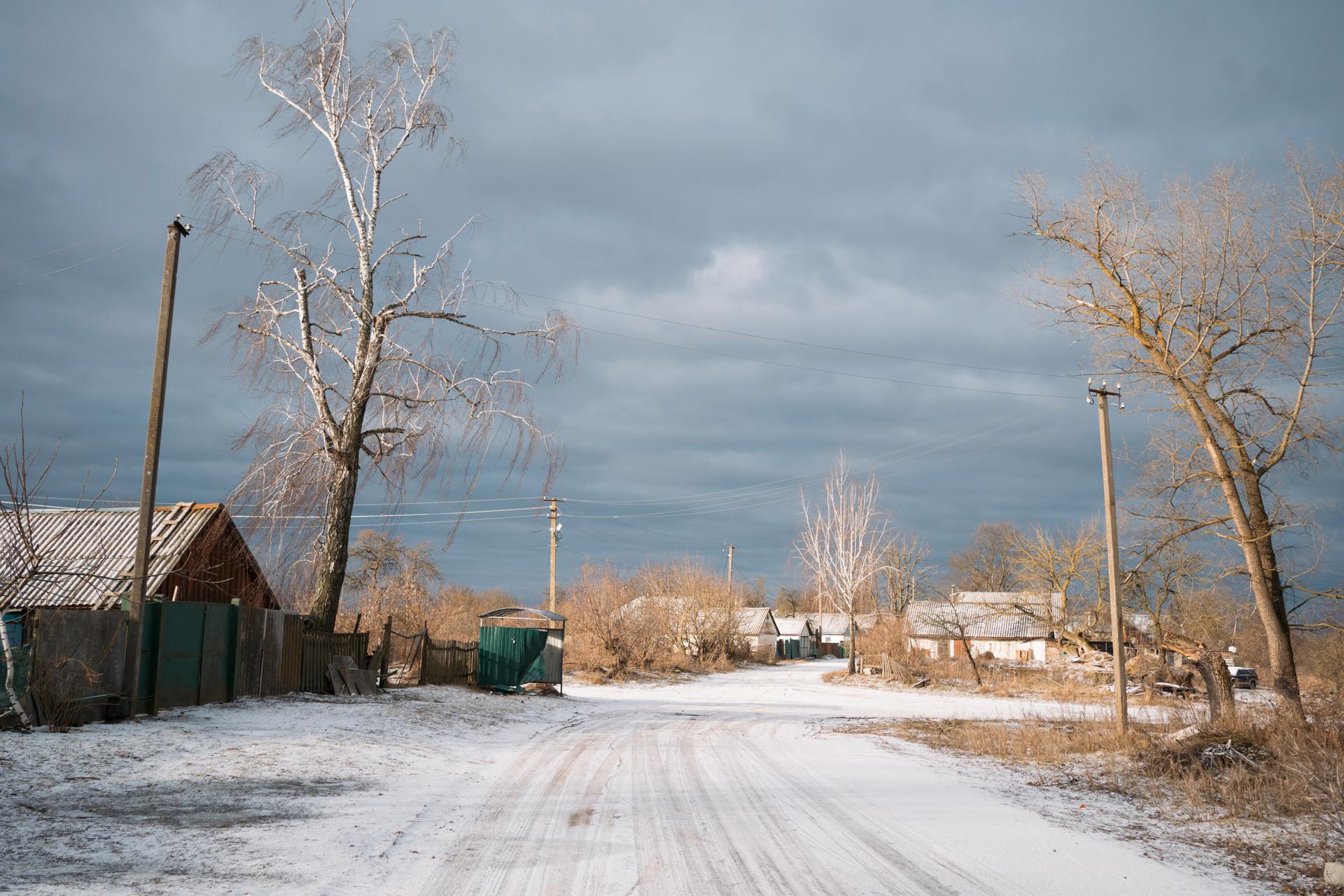At Iryna Terekhova’s house in the Ukrainian village of Lukashivka, the walls are crumbling, and the roof is no more. Many of the homes on her street are also badly damaged.
“A lot of people left, and many of them haven’t returned yet,” she said, speaking through an interpreter. “You can see here that only five houses are being rebuilt.”
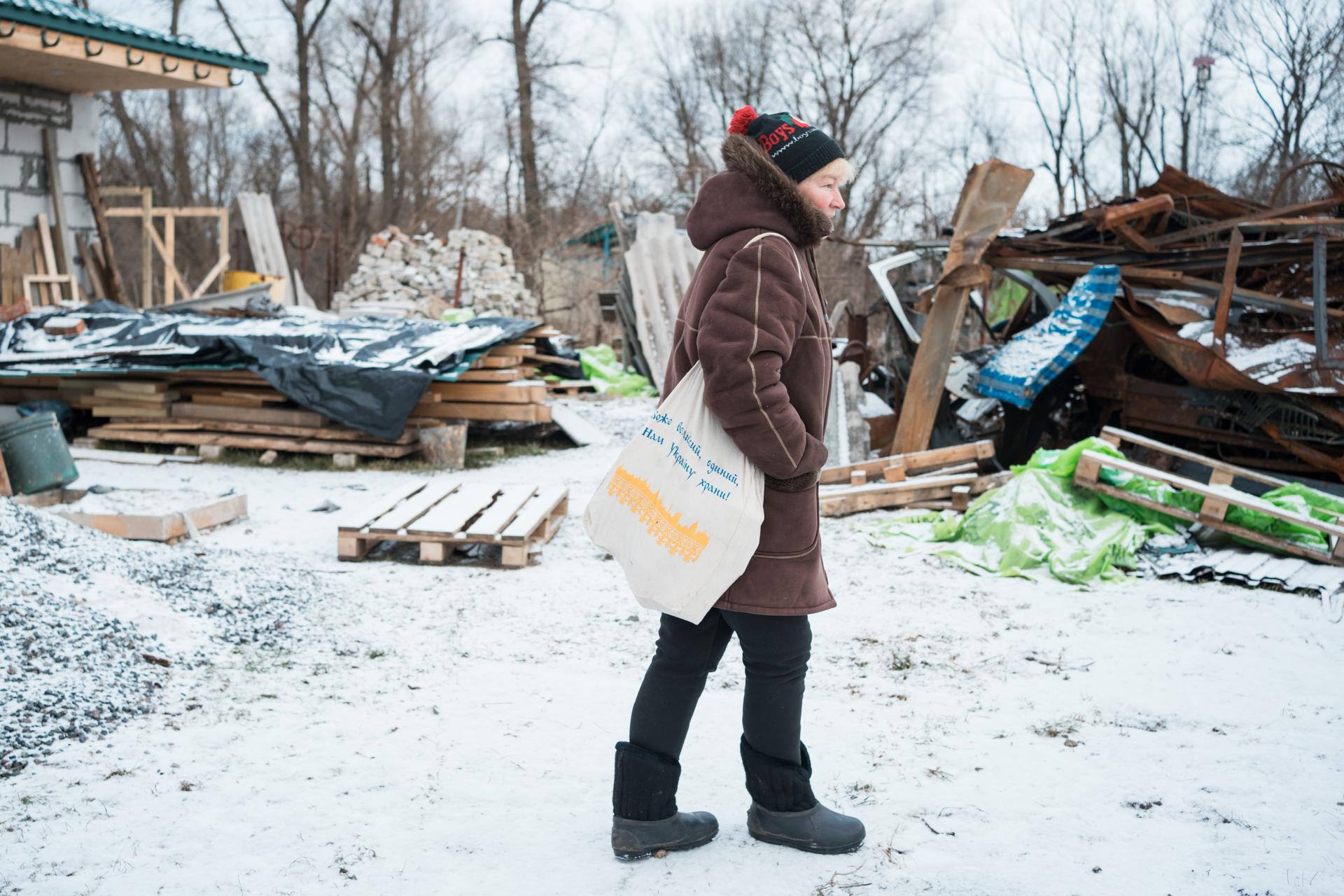
In Lukashivka and other parts of northern Ukraine, near the border with Belarus, Russian troops were firmly in control for several weeks early last year. The most intense fighting here ended months ago — after Ukrainian forces retook the area.
Today, buildings and bridges are starting to be rebuilt. But new, invisible wounds that never fully heal are still being inflicted, every day.
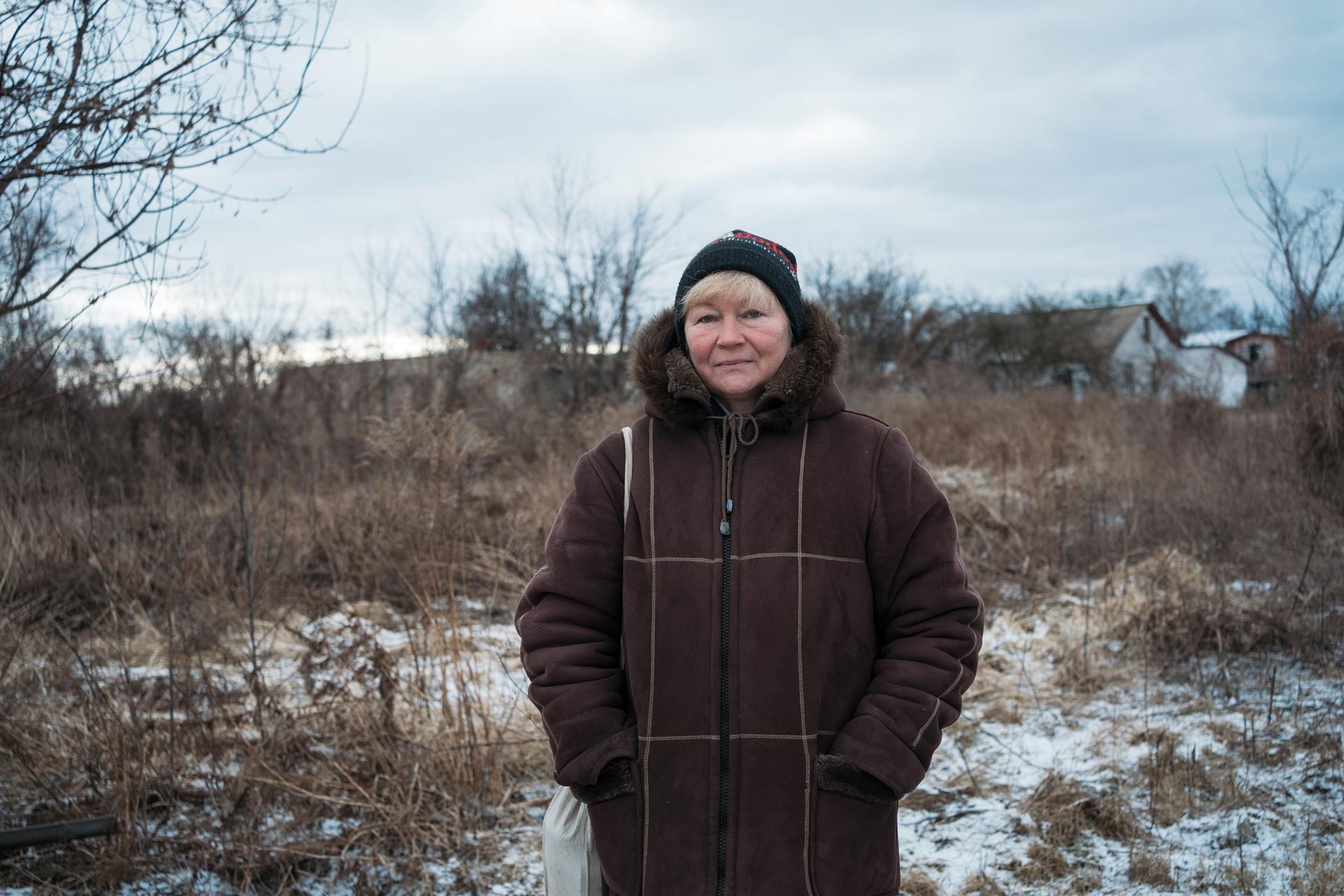
Terekhova said that she and her husband moved to this house before the Russian invasion in Ukraine began on Feb. 24, 2022. They wanted the small-town atmosphere, and space to garden. Now they’re living with neighbors until temporary housing is built.
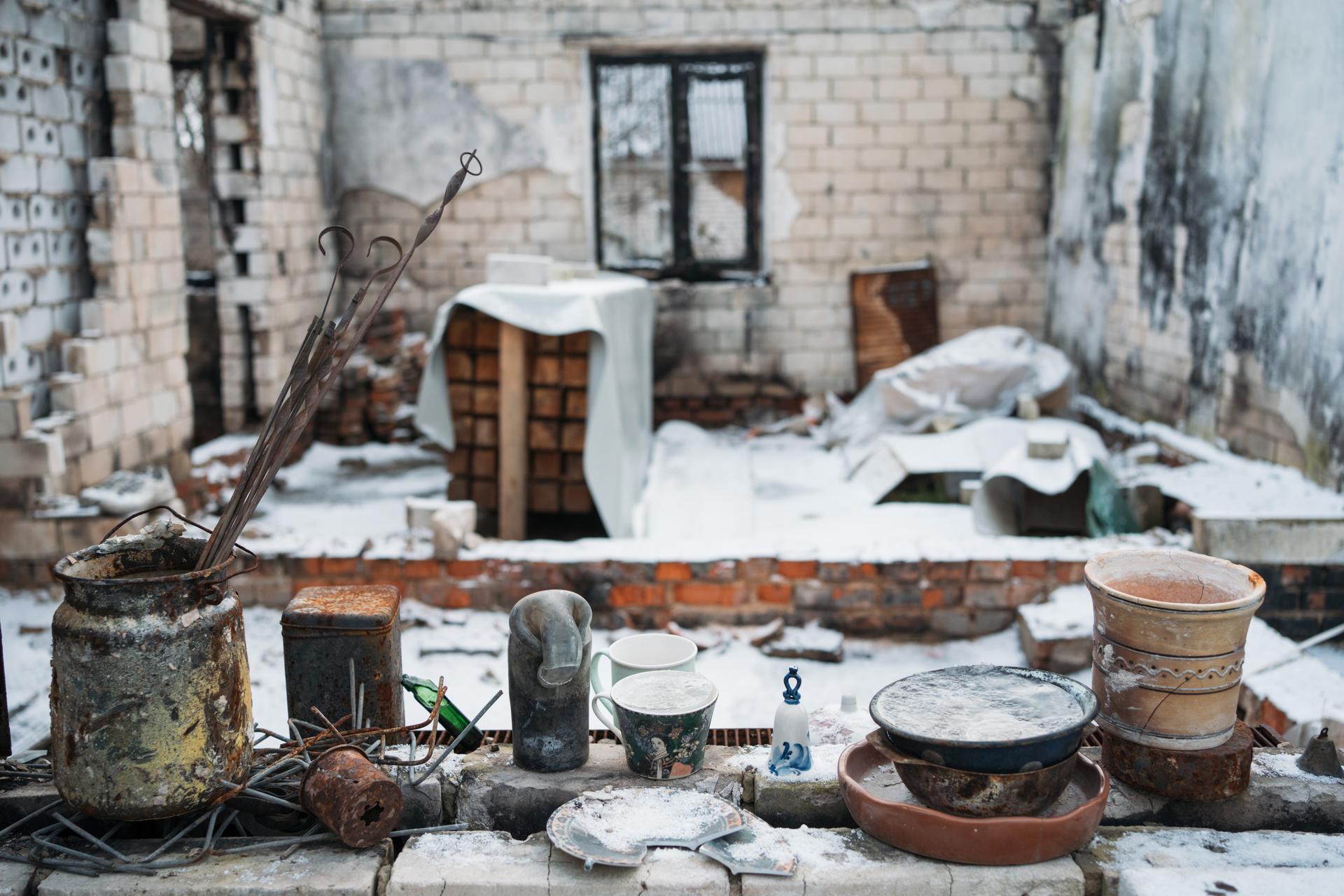
“But me and my husband, we’re looking forward to going back to our house, ready to start gardening and fixing the trees. We’re still going to live here and it’s going to go back to normal.”
Irina Novikova, who lives across town, said that she was forced to host 11 Russian soldiers here during the occupation.
“So, yeah, me and my husband slept on the floor, and actually, Russian soldiers slept on the floor next to us, only the dog between us separated us.”
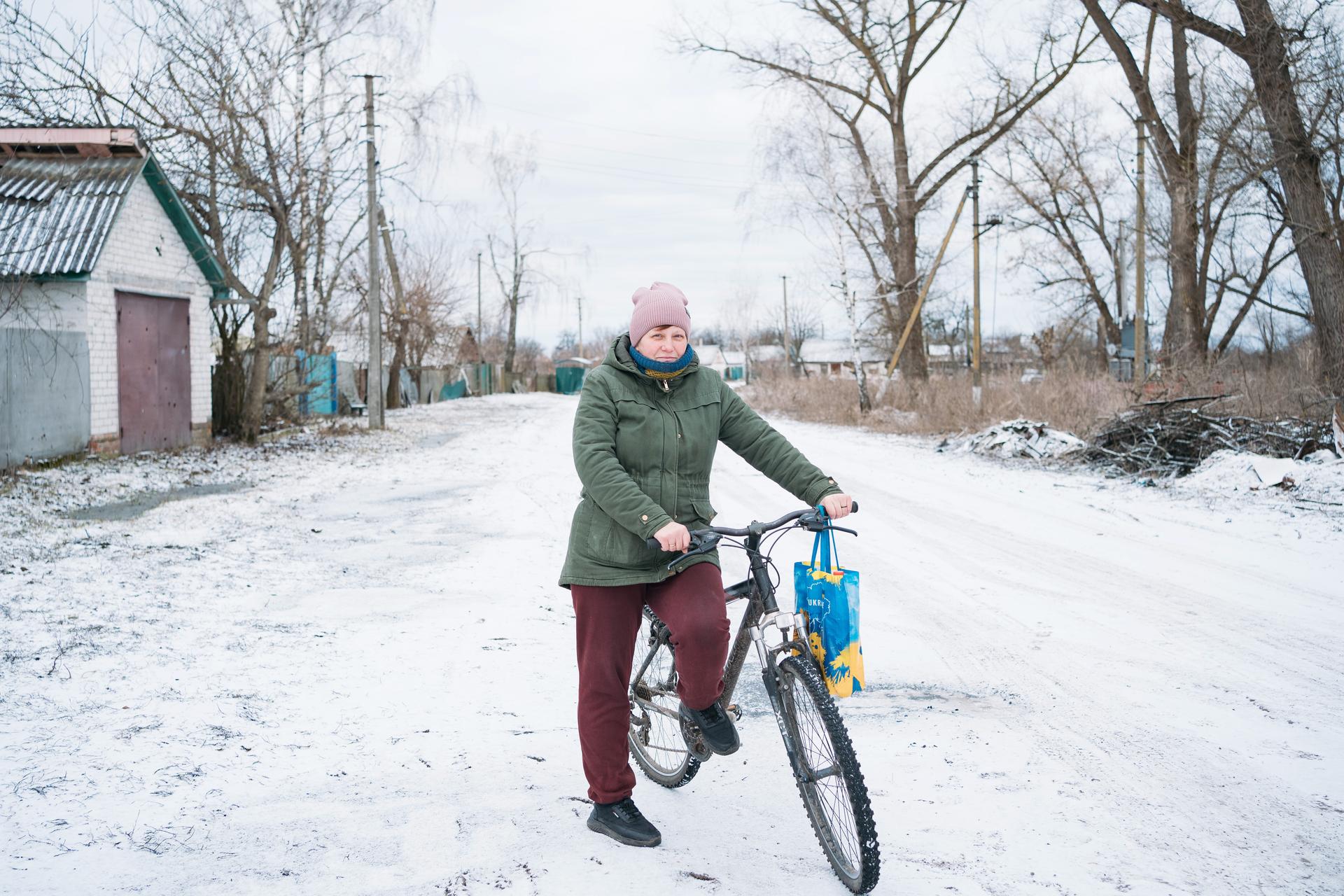
Those Russian soldiers are long gone, but Novikova said that their presence made people here suspicious of her family. Now, she said that she wishes she could leave, if only someone would buy her house.
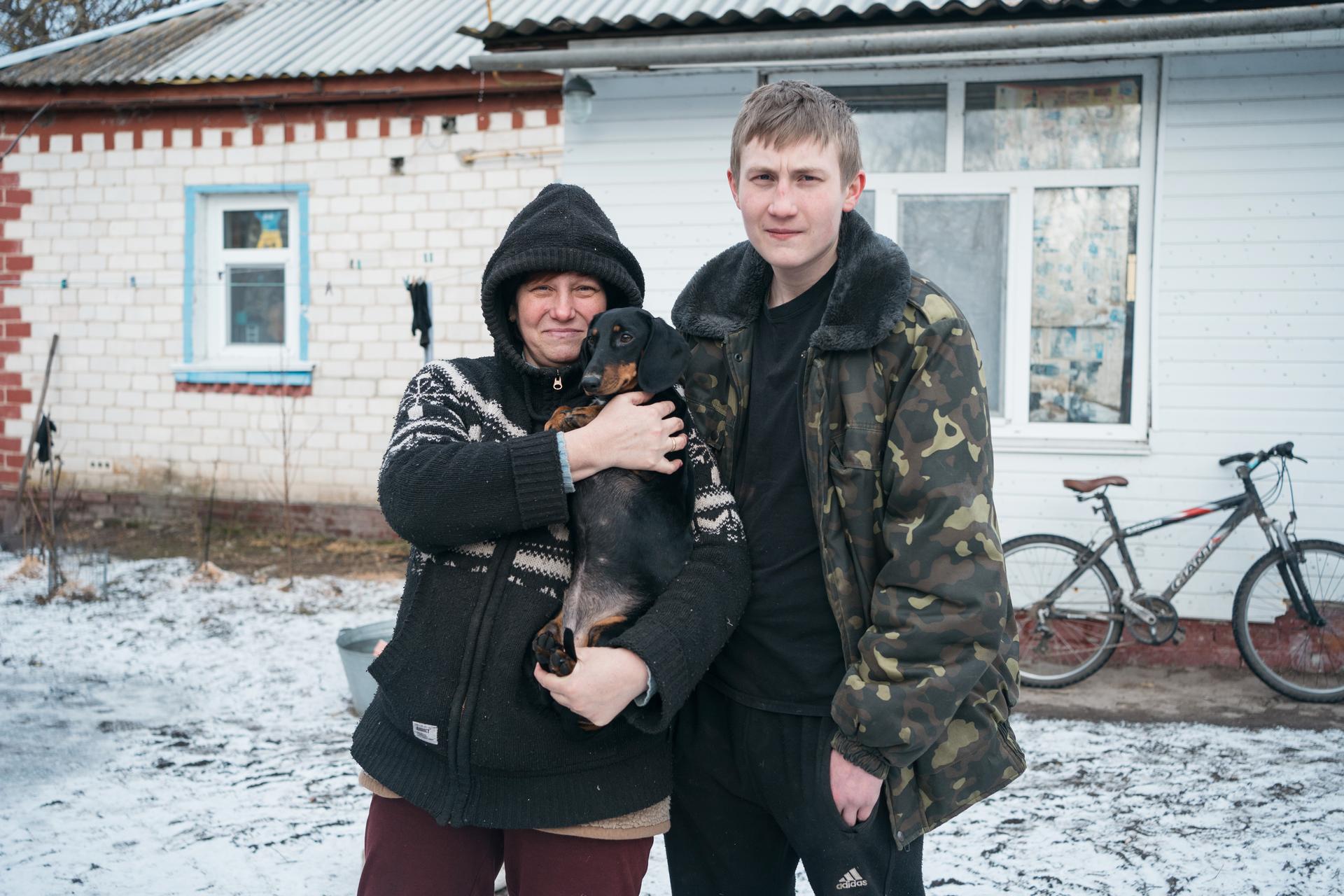
Under siege
About 10 miles up the road from the village is Chernihiv, the provincial capital. While Lukashivka was occupied, the city was under siege.
Besides ground forces, the area was hit by rockets and bombs while armored vehicles and tanks rolled in. Nearby towns were destroyed, leaving 600 dead and 1,500 injured, according to Viacheslav Chaus, the regional governor here.
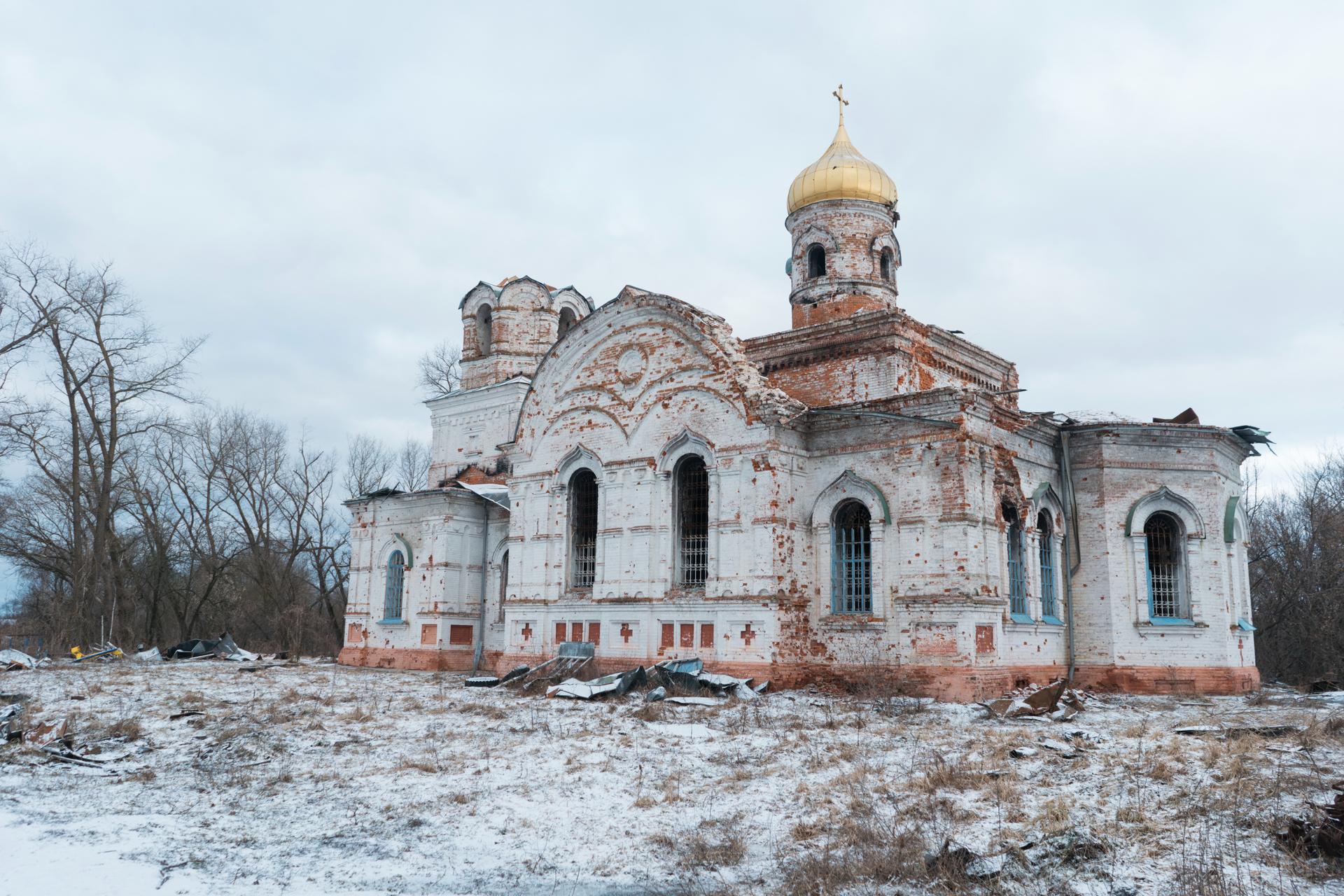
He described what it was like: “We had no electricity, no food, no heat supply, no mobile connection. The food was mostly sent here by boats by the Desna river. Most of the civilians of Chernihiv were situated in the basements, in the shelters. We were fighting.”
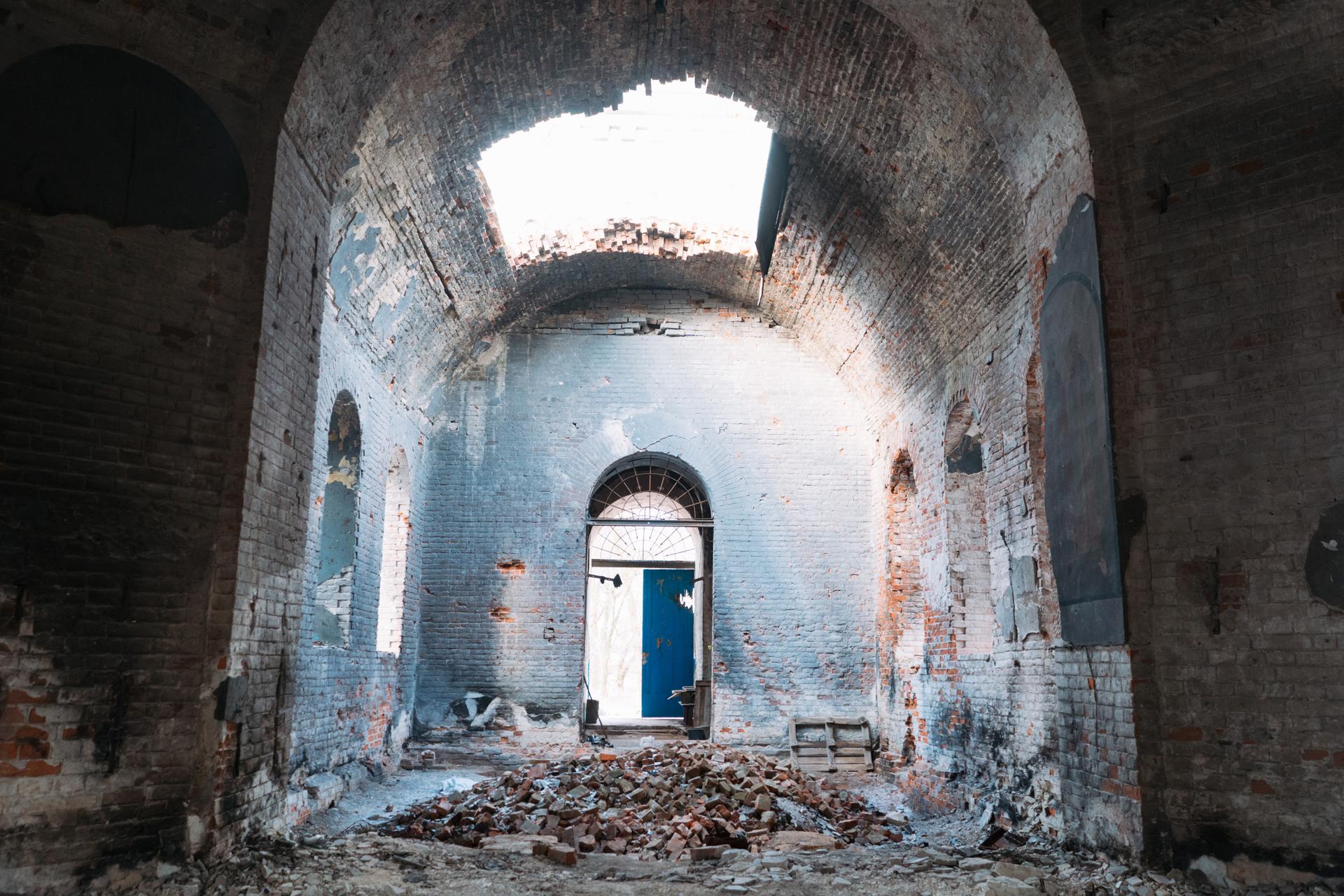
Just outside the city center, in a heavily bombed area, there’s an apartment building that had a huge hole in the side last spring. Now, it’s being repaired; there’s fresh cinder blocks and a crane that looks like it’s in the middle of construction.
In the apartment building next door, Yury Khomytskyi and Nina Khomytskyi have been busy trying to make their apartment livable again with new furniture and radiators.
“Over here you can see, all fixed and repaired, all this was damaged, we bought a new closet, a new light, new windows by our own money,” Yury Khomytskyi said.
That money was their retirement income. Out the window, Yury Khomytskyi pointed to the ground seven floors below. There’s a crater across the street and heavy damage to a squat red pharmacy — 48 people died after two bombings.
Those explosions also blew out the windows and interior doors here and made it look like a tornado tore through the couple’s apartment.
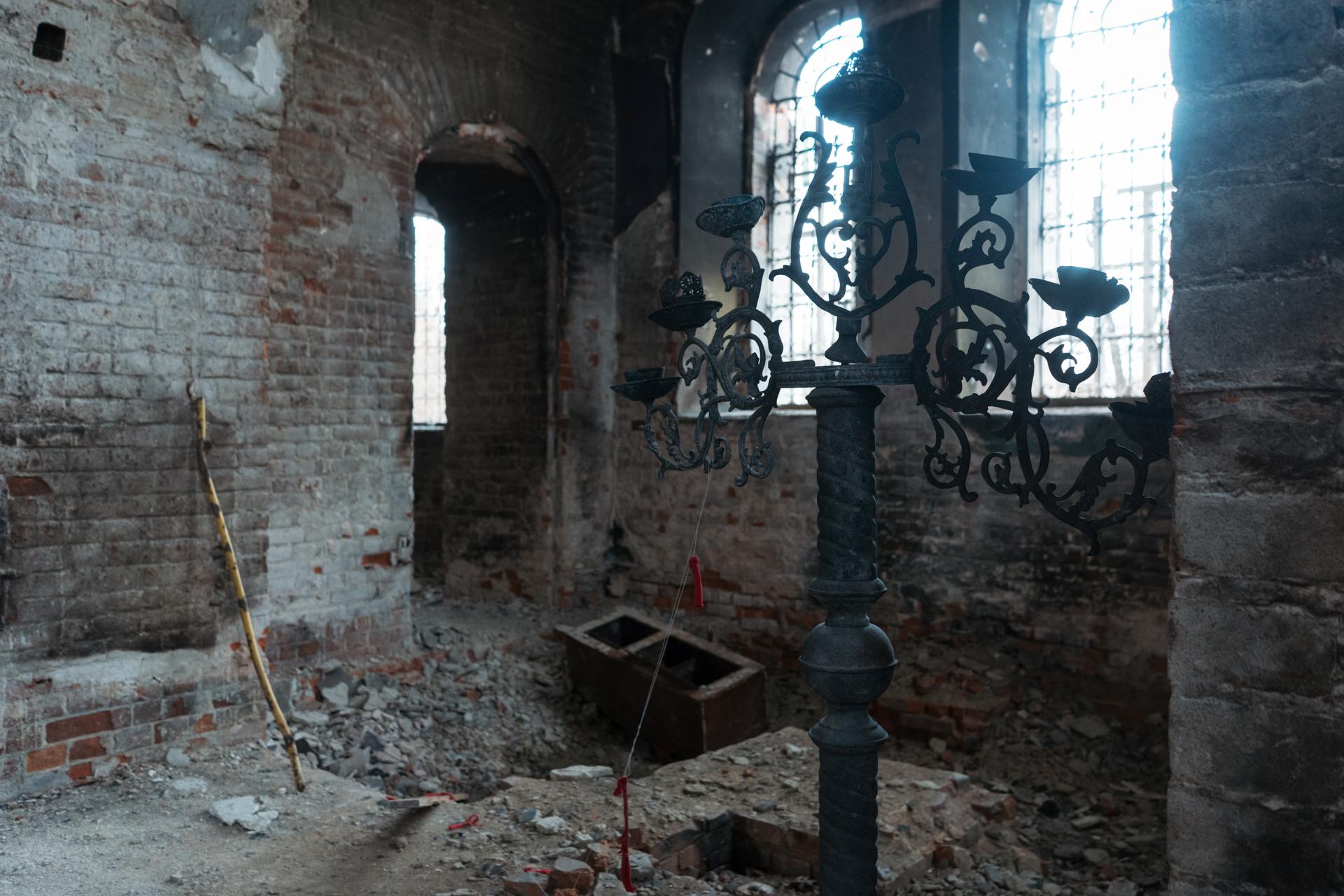
Nina Khomytskyi said that their twin daughters have moved abroad, to Canada, with the grandkids. She said that they talk every day, and the grandkids want to come home.
Even with the apartment nearly fixed up, Yuri Khomytskyi said it will never feel normal here until the war is over.
‘We have to forgive the Russians’
St. Catherine’s Cathedral in Chernihiv is an imposing, 18th-century church with golden domes at the edge of the town square.
Mykolay Apanasenko is one of the priests here.
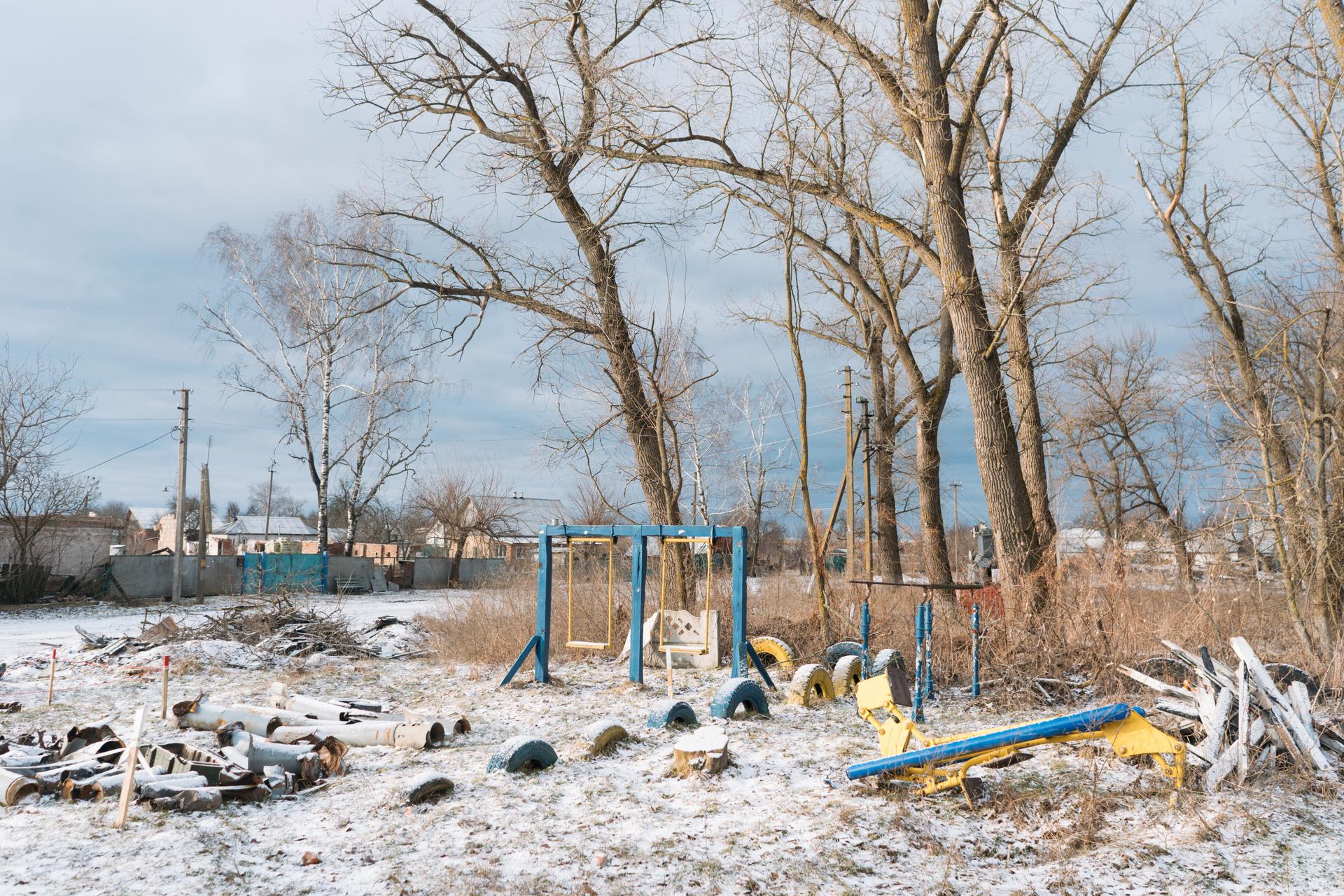
“Mostly, people are coming here to pray for our warriors that are defending us. And we’re talking with the people and trying to tell them we have to forgive Russians. And people cannot do this.”
That’s because they’ve been through so much, the priest explained. He said a funeral service was about to begin for a Ukrainian soldier killed in combat.
The soldier, Mykola Gerashchenko, enlisted to defend his home city as it was being surrounded by Russian forces. He was killed almost 500 miles away in an area where there’s been fierce fighting since May.
His widow, Svetlana Gerashchenko, said her husband was trying to save an injured comrade when he was mortally wounded.
“He was very brave,” she said. “He was a patriot. A real hero. There are no more men like this. It’s a pity that these men, these kinds of people are dying. Real men. It is a pity that his arms will not embrace me anymore.”
Editor’s note: Max Tkachenko contributed to this report.
